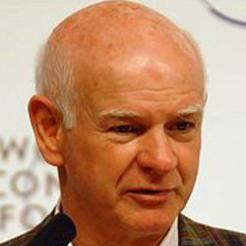Charities should be wary of regaling donors with too many facts and figures about the impact of their work because giving is often irrational and ruled by emotion, a leading economist has warned.
Sir Howard Davies, former director of the London School of Economics, told an audience of economists and charities last night that too much emphasis on explaining a charity can put people into a deliberative state in which they are less likely to be generous.
Sir Howard was delivering the playfully-titled talk ‘Why do people give their money away and how can we stop them acting so irrationally?’ at the Pro Bono Economics 2012 lecture, held at PricewaterhouseCooper’s London Bridge offices.
With an increasing emphasis on impact measuring in the voluntary sector – Pro Bono Economics itself is a charity that matches volunteer economists with charities looking to address questions of measurement, results and impact – Sir Howard’s views presented an intriguing conundrum: how best to measure solid objective outcomes within a sector that by its nature deals with the subjective and emotional?
During the course of his lecture, the once-chairman of the Financial Services Authority examined both the economic and personal reasons driving charitable donations, which include the ‘warm glow’ hypothesis, wealth signalling and generosity signalling – all factors motivated by feelings, rather than cognitive analysis.
The timing of the ask is also important, Sir Howard said. A comment from the floor agreed, the delegate stating that donors give more to a charity that supports troubled youths if they are asked when the subjects are soon to successfully graduate, rather than at the start of the project when there is still far to go.
Noting the poor performance of British donors compared with American philanthropists - Brits give less than half as much of their income to charity, but are more generous than mainland Europeans - Sir Howard pointed to analysis from Charities Aid Foundation which suggests that donations as a proportion of GDP are lower in countries with higher personal tax levels.
He also said that, typically, Americans have a low view of the state’s capacity to act, are optimistic about the ability of individuals to solve social problems, and are less inclined to bequeath their entire estates to their families.
The full transcript of his lecture is available on the Pro Bono Economics website.








